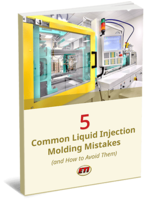ASTM Skin Effects Standard aids consumer product evaluation.
Press Release Summary:
Offered as methods for evaluation of potential irritant effects to skin as well as safety assessment of consumer products, standard ASTM F2808 can be used to test inherent chemical irritation potential of material as well as effects of mechanical irritation to skin. Standard was developed by Subcommittee F04.16 on Biocompatibility Test Methods. Standard allows 2 products to be simultaneously tested on same participant and tests are capable of providing pertinent results on various material types.
Original Press Release:
New ASTM Standard Evaluates Potential Chemical and Mechanical Effects of Consumer Products on Skin
W. CONSHOHOCKEN, Pa.-Evaluating potential irritant effects to skin is an important part of the overall safety assessment of many consumer products, including feminine hygiene products, fabrics and diapers. The normal use of these products involves contact with the skin, while continuous friction through normal movement can result in mechanical irritation. A new ASTM International standard can now be used to test both the inherent chemical irritation potential of a material as well as the effects of mechanical irritation to the skin.
The new standard, ASTM F2808, Standard Test Method for Performing Behind-the-Knee (BTK) Test for Evaluating Skin Irritation Response to Products and Materials that Come Into Repeated or Extended Contact with Skin, was developed by Subcommittee F04.16 on Biocompatibility Test Methods, part of ASTM International Committee F04 on Medical and Surgical Materials and Devices.
According to Dr. Miranda A. Farage, principal scientist, The Procter and Gamble Co., and an F04 member, the behind-the-knee (BTK) test allows for the evaluation of both chemical and mechanical irritation of products while eliminating some of the limitations of clinical test systems currently in use.
"The BTK method allows two products to be concurrently tested on the same participant," says Farage. "Results from decades of BTK testing have shown the test to be reliable, reproducible and sensitive to subtle changes. The BTK test also provides results in a shorter period of time at a reduced cost and is less burdensome for both the investigators and participants."
Farage says that ASTM F2808 provides a versatile test that is capable of providing meaningful results on a variety of material types and products, including but not limited to textiles, feminine hygiene products, facial tissues, baby and adult diapers and laundry products.
To purchase ASTM standards, visit www.astm.org and search by the standard designation number, or contact ASTM Customer Relations (phone: 610-832-9585; service@astm.org). ASTM International welcomes and encourages participation in the development of its standards. For more information on becoming an ASTM member, visit www.astm.org/JOIN.
ASTM International is one of the largest international standards development and delivery systems in the world. ASTM International meets the World Trade Organization (WTO) principles for the development of international standards: coherence, consensus, development dimension, effectiveness, impartiality, openness, relevance and transparency. ASTM standards are accepted and used in research and development, product testing, quality systems and commercial transactions.
View this release on the ASTM Web site at www.astmnewsroom.org.
ASTM Committee F04 Next Meeting: May 17-20, May Committee Week, Anaheim, Calif. Technical Contact: Miranda A. Farage, The Procter and Gamble Co., Cincinnati, Ohio, Phone: 513-634-5594; farage.m@pg.com
ASTM Staff Contact: Daniel Schultz, Phone: 610-832-9716; dschultz@astm.org
ASTM PR Contact: Barbara Schindler, Phone: 610-832-9603; bschindl@astm.org




